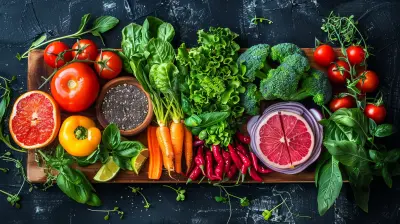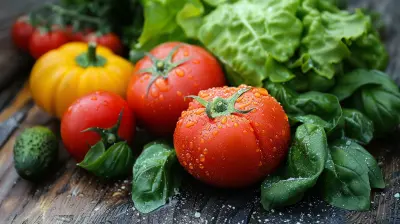Essential Nutrients for a Healthy Pregnancy
1 June 2025
Bringing a new life into the world is nothing short of a miracle, and ensuring a healthy pregnancy starts with proper nutrition. Your body undergoes incredible changes, and the little one growing inside you relies on you for everything—including essential nutrients.
Eating the right foods and making sure you get enough vitamins and minerals can make a world of difference, not just for your baby's development but also for your well-being. So, what exactly should you be focusing on? Let's break it down! 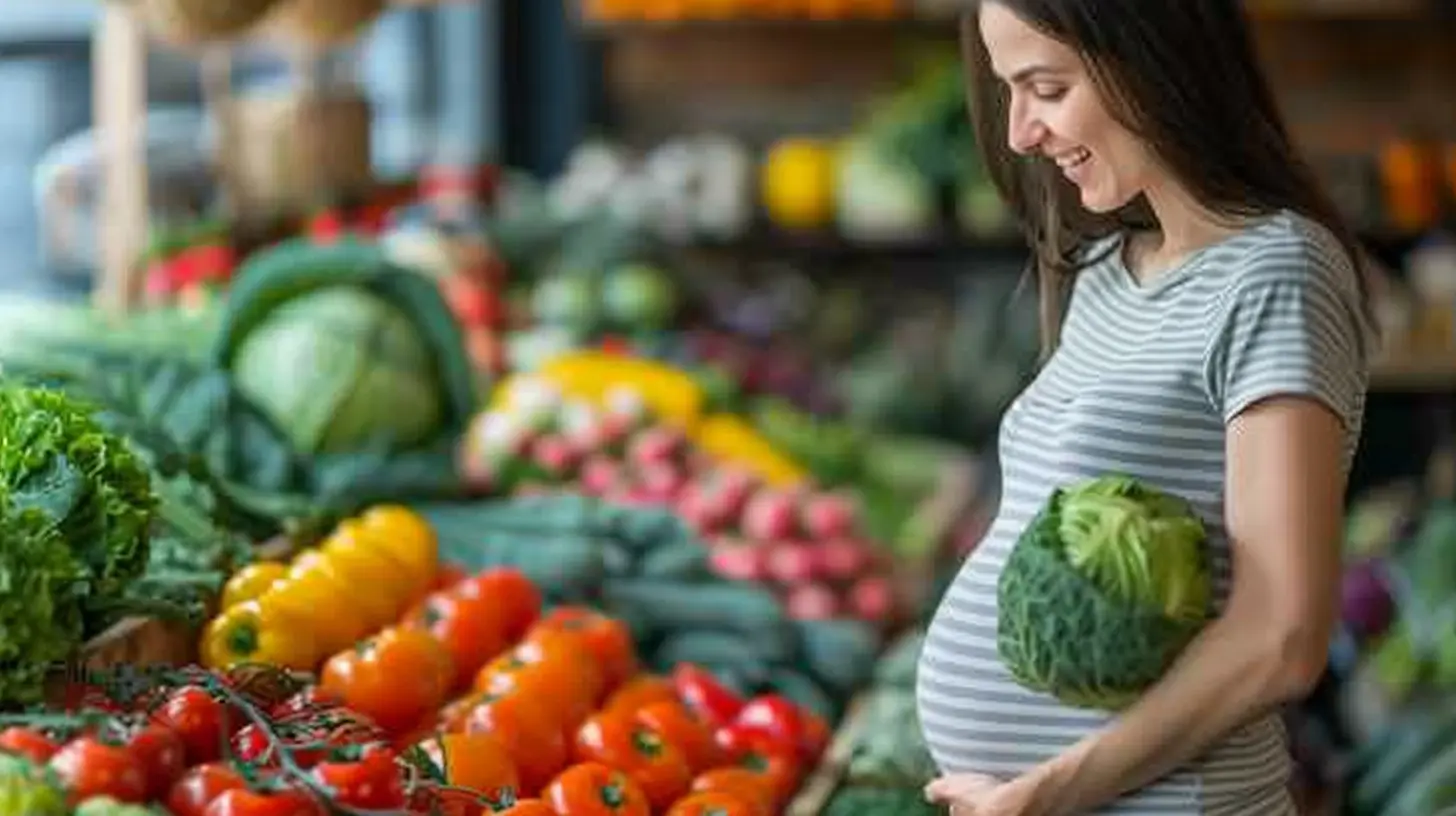
1. Folic Acid: The Baby's Best Friend
Folic acid (or folate, in its natural form) is one of the MVPs of pregnancy nutrition. It plays a critical role in early fetal development, particularly in forming the neural tube, which later becomes the baby's brain and spinal cord.Why It Matters:
- Prevents neural tube defects like spina bifida- Supports brain and spinal development
- Aids in red blood cell formation
Where to Get It:
Leafy greens, citrus fruits, beans, lentils, and fortified cereals are rich in folate. Most doctors also recommend folic acid supplements during pregnancy to ensure you're getting enough.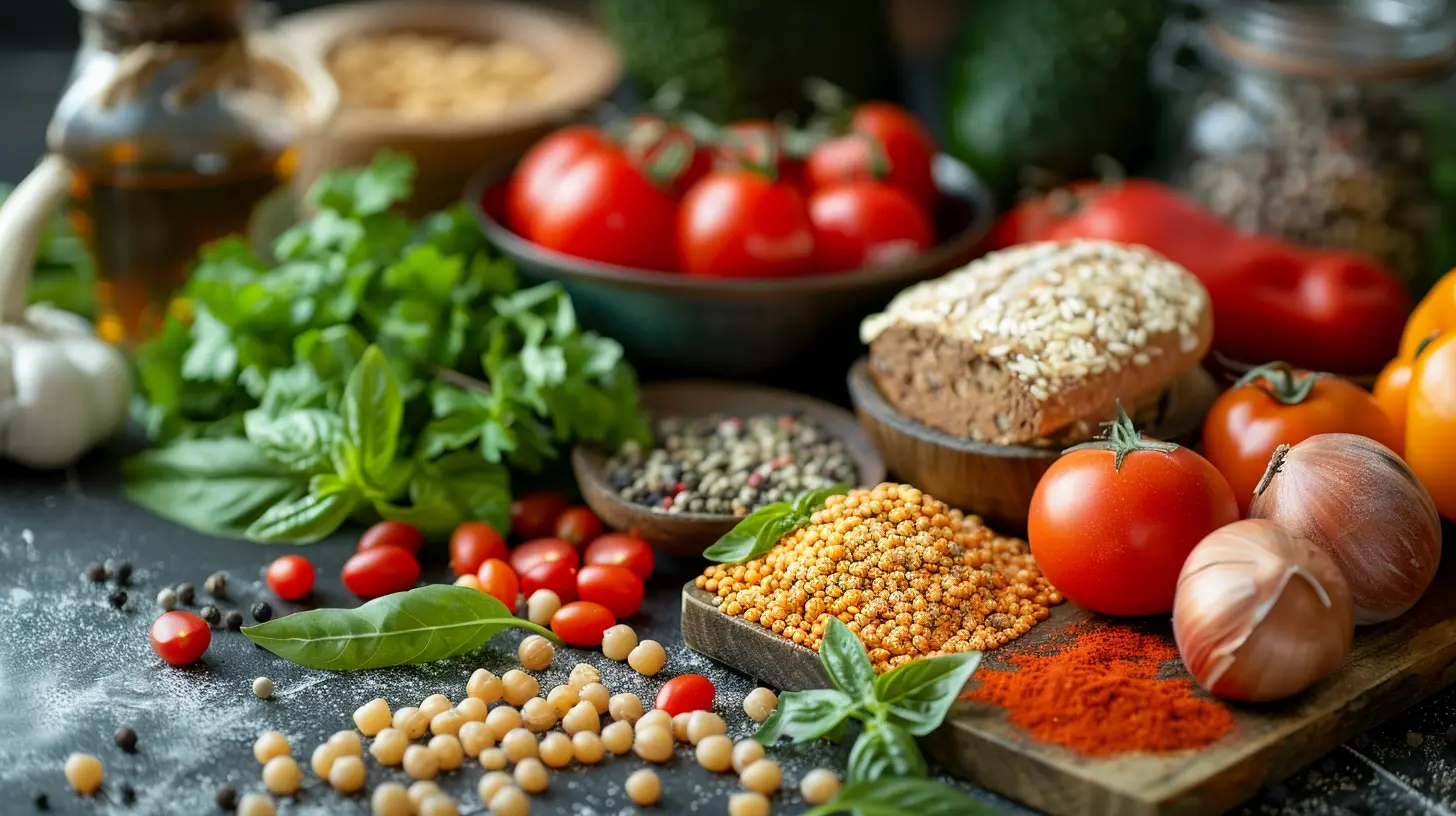
2. Iron: The Oxygen Carrier
Ever feel exhausted during pregnancy? That’s because your body is working overtime to supply blood to your baby. Iron is key to making hemoglobin, the protein in red blood cells that transports oxygen.Why It Matters:
- Helps prevent anemia (which can leave you feeling drained)- Supports your baby’s growth and brain function
- Reduces the risk of preterm birth and low birth weight
Where to Get It:
Lean meats, spinach, lentils, beans, tofu, quinoa, and fortified cereals are great sources. Pairing iron-rich foods with vitamin C (like oranges or bell peppers) helps boost absorption!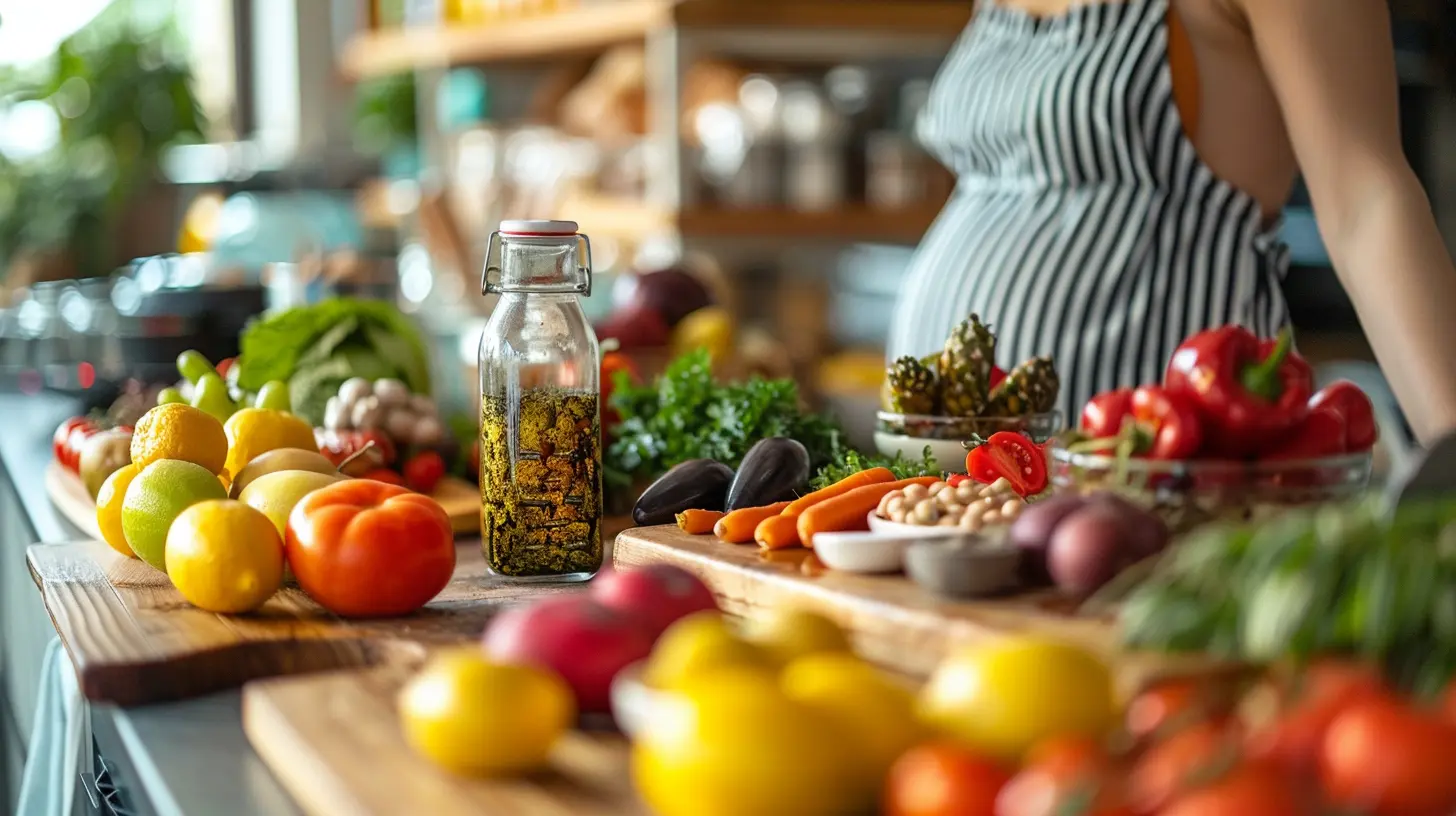
3. Calcium: Strong Bones for Two
Your baby's skeletal system is developing rapidly, and if you’re not getting enough calcium, your body will take it from your bones—leaving you at risk for osteoporosis later on.Why It Matters:
- Builds strong bones and teeth for baby- Helps maintain muscle and nerve function
- Prevents bone loss in the mother
Where to Get It:
Dairy products like milk, cheese, and yogurt are excellent sources, but if you're lactose intolerant or prefer plant-based options, try almonds, tofu, fortified plant milk, and leafy greens.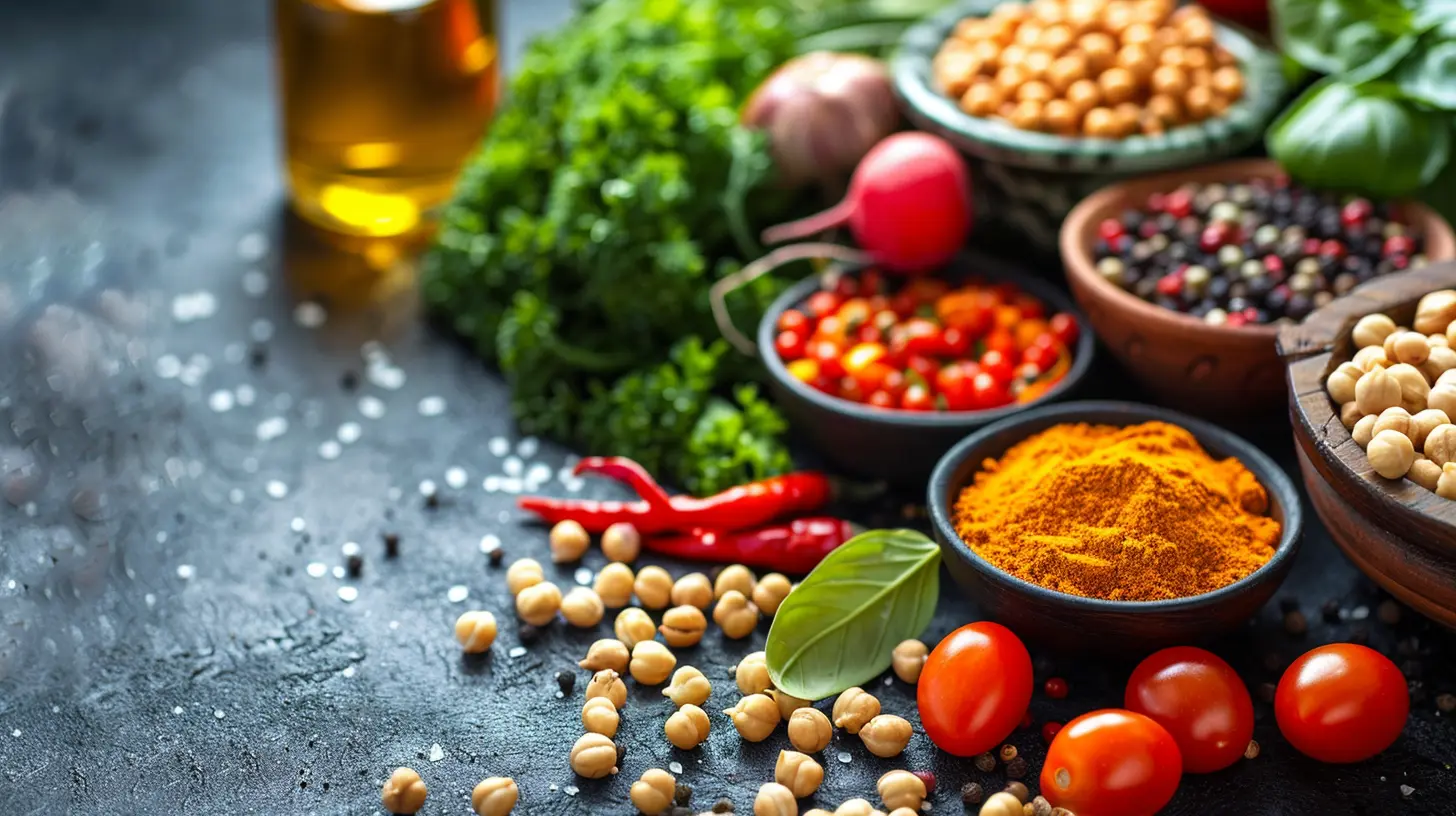
4. Protein: The Body’s Building Block
Think of protein as the construction worker behind your baby’s growth. It helps build cells, organs, and muscles while also keeping your own body in top shape.Why It Matters:
- Supports fetal growth and development- Helps produce essential hormones and enzymes
- Keeps mom feeling full and energized
Where to Get It:
Lean meats, eggs, poultry, fish, dairy, nuts, seeds, and legumes are all fantastic sources. If you’re vegetarian or vegan, make sure you’re getting a mix of plant-based proteins like lentils, quinoa, and tofu.5. Omega-3 Fatty Acids: Brain Food for Baby
Omega-3s, particularly DHA (docosahexaenoic acid), play a huge role in your baby’s brain and eye development. These healthy fats also help reduce inflammation and improve heart health.Why It Matters:
- Supports fetal brain and eye development- Reduces the risk of postpartum depression
- Helps regulate blood pressure
Where to Get It:
Fatty fish like salmon, sardines, and trout are excellent sources. If you’re not a fan of seafood, try flaxseeds, chia seeds, walnuts, or a prenatal supplement that includes DHA.6. Vitamin D: The Sunshine Nutrient
Vitamin D helps with calcium absorption, making it essential for bone health. It also plays a role in immune function and reducing pregnancy complications.Why It Matters:
- Strengthens baby’s bones and teeth- Supports mom’s immune system
- May lower the risk of pregnancy complications like gestational diabetes
Where to Get It:
Sunlight is the best source, but it’s tricky to get enough, especially in colder months. Include vitamin D-fortified foods like milk, orange juice, and eggs, or consider a good supplement.7. Fiber: The Digestion Helper
Pregnancy hormones can sometimes slow down digestion, leading to constipation—a common and uncomfortable issue. Fiber keeps things moving smoothly.Why It Matters:
- Prevents constipation and bloating- Supports heart health by lowering cholesterol
- Keeps blood sugar levels in check
Where to Get It:
Whole grains, fruits, vegetables, nuts, seeds, and legumes are packed with fiber. Staying hydrated also helps keep digestion running smoothly!8. Choline: The Overlooked Nutrient
Choline doesn’t get as much attention as folic acid, but it’s just as vital. It supports brain development and helps prevent neural defects.Why It Matters:
- Crucial for fetal brain and spinal cord development- Helps with memory and cognitive function
- Supports liver health
Where to Get It:
Eggs are one of the best sources, but you’ll also find choline in beef, chicken, fish, dairy, and peanuts.9. Magnesium: The Multitasker Mineral
Magnesium is involved in over 300 biochemical reactions in the body, including muscle function and blood sugar control.Why It Matters:
- Helps reduce leg cramps (a common pregnancy woe)- Supports baby’s bone and muscle development
- Aids in regulating blood pressure
Where to Get It:
Nuts, seeds, whole grains, beans, avocados, and dark chocolate are great sources of magnesium—yes, chocolate!10. Water: The Ultimate Necessity
Okay, so water isn’t exactly a nutrient, but staying hydrated is just as important as eating the right foods. Your body needs extra fluids to support increased blood volume and amniotic fluid levels.Why It Matters:
- Keeps the body hydrated and prevents dehydration-related complications- Helps nutrients travel to the baby
- Reduces the risk of urinary tract infections (UTIs)
How Much to Drink:
Aim for at least 8–10 glasses of water a day. If plain water isn’t your favorite, try adding a slice of lemon, cucumber, or fresh berries for a bit of flavor.Final Thoughts
Eating a well-balanced diet packed with essential nutrients is one of the best ways to ensure a healthy pregnancy. While supplements can help fill in the gaps, focusing on whole, nutrient-dense foods is key.Remember, every pregnancy is unique. Always consult with your healthcare provider to tailor your diet and supplement intake to your specific needs. After all, a nourished body creates the best environment for your little one to thrive!
all images in this post were generated using AI tools
Category:
Pregnancy HealthAuthor:

Laura Hudson
Discussion
rate this article
3 comments
Francesca Soto
Comprehensive guide! Ensuring a balanced intake of essential nutrients supports both maternal health and fetal development.
June 18, 2025 at 3:56 PM

Laura Hudson
Thank you! Ensuring a balanced nutrient intake is indeed crucial for both mother and baby's health.
Kane Hudson
Oh, sure! Just what every pregnant woman needs—more lists of essentials! Because, you know, juggling cravings, mood swings, and a tiny human growing inside her isn’t challenging enough. Let’s add “must-have nutrients” to the fun! What’s next, a checklist for breathing?
June 1, 2025 at 3:47 PM

Laura Hudson
I understand your frustration! My intention is to provide helpful guidance, not add stress. Nourishing both mom and baby is crucial, and I hope these lists can simplify that journey.
Seth Kirk
Oh, great! Just what I needed—another reminder that my fries don't count as a vegetable. Who knew "essential nutrients" were more than just sleeping in and binge-watching—guess it's time to hit the salad bar!
June 1, 2025 at 3:09 AM

Laura Hudson
Haha, I get it! Finding the right balance is key, but think of it as adding variety to your plate. Your baby will thank you! 🍏🥗

